The underlying framework that supports your content is where blogging begins. You might choose a self-hosted blog (WordPress or Ghost) or a pre monetized blogging platform like Medium, Vocal, or HubPages in some circumstances. These are only a handful of the alternatives available to writers looking for the best blogging platforms to earn money.

If you are looking for the most profitable blog site, it’s good to go with WordPress.org. It offers a vast variety of useful features and is easy to handle. If you are looking for free sites to generate income, Blogger, Medium, Vocal.media are great for such users.
We were able to compile a list of the top blog sites, both paid and free, as well as their features. You can start your online blog with these blog sites by selecting the ideal platform for you and your budget. Along with having a passion for blogging, having the correct platform is critical to make money from blogging, which we have helped to explain in this article.
Blogging has continued to evolve and with it has come to a change in what constitutes a blogging platform. Bloggers can now opt to post their content on microblogging sites with newly introduced payment features, in addition to the previously stated platforms (Twitter or Tumblr). They can also look into blogging hybrid sites, which offer writers more than just blogging capabilities (such as newsletter features offered by Substack).
With so many blogging platforms to choose from, it can be difficult to know which one is right for you. This article will look at the best blogging platforms for earning money.
Best Medium Alternatives to to Make Money
1. WordPress.org

WordPress is one of the most widely used open-source platforms in the world. It’s often used as a website content management system (CMS) and for blogging. The beauty of WordPress is that it does not require any technical skills or experience to utilise. Bloggers, small business owners, and even Fortune 500 businesses use WordPress.
Although it takes more time and effort than “premonetized” blogging platforms like Medium, Vocal.Media, and HubPages, gives bloggers true ownership of their content and eliminate the risk of being deplatformed or having their content negatively impacted by algorithm changes on these other platforms.
WordPress is also simple to use because it has a number of established connections with web hosting companies like Bluehost. Setting up a self-hosted blog is now much easier than it was years ago.
- 40 percent of all websites on the internet are controlled by it.
- Content can be monetized in a variety of ways.
- Bloggers have complete ownership and control over their work.
2. Ghost

For authors and journalists, Ghost is an open-source blogging platform. It has a simple and minimalist user interface that makes blogging easier for its users. Ghost comes with built-in SEO tools and plugins that make it simple for users to optimise their content. Amateur bloggers as well as seasoned editors working for huge media companies use the Ghost platform.
The number of services you may simply offer sets Ghost apart from other blogging sites. In a world of blog hybrid-products like subscription newsletters, membership sites, gated digital material, offering courses, and selling digital items, this is becoming increasingly vital.
- Provides a diverse set of publishing tools for bloggers.
- Regardless of revenue, a fixed monthly fee is charged.
- You have complete ownership and control over your content
3. Substack
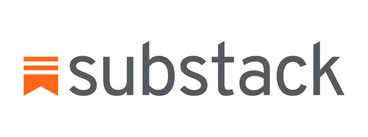
Substack makes it simple for a writer to launch an email newsletter that generates revenue through subscriptions. Substack is a company that creates web and newsletter publishing solutions that are designed specifically for paid subscribers. Many writers use Substack because it’s an all-in-one solution for those who want to monetise their newsletter. Substack also gives audio makers the option of charging and distributing their podcasts via the company’s newsletter delivery system.
Substack is a combination of the two approaches, and many bloggers equate it with newsletters rather than blogging. Like a typical blog post, you may (1) send subscribers newsletter posts and (2) have those posts published on your Substack newsletter domain.
- Provides a hybrid newsletter-blogging platform for bloggers.
- Handles the practical challenges that come with running a newsletter on your own.
- Substack only takes a percentage of premium subscriber revenue, thus publishing is free (and enabling monetization is optional).
4. Vocal.Media

Vocal. Media serves as a forum for creators to be supported, discovered, and rewarded. Writers, singers, filmmakers, artists, and other forms of creatives can use Vocal’s storytelling tools and active communities to get found and fund their work. Vocal was created to broaden the audience for content dissemination while also assisting writers in monetizing their work through a variety of features.
Writers benefit from vocal in a variety of ways.
To begin, Vocal compensates creators based on how many “reads” their stories acquire.
- Vocalists are compensated $3.80 every 1000 readings.
- Creators of Vocal+ are rewarded $6.00 every 1000 reads.
Second, Vocal makes it easier for your fans to give you advice. Tipping allows your readers to pay you directly for your tales in the form of micropayments that are sent directly to your Stripe account.
- Bloggers should have a clear remuneration system.
- There is a built-in monetization programme.
- Its platform is available in both a free and a paid edition.
5. HubPages
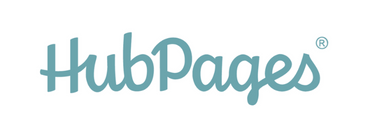
HubPages was created in 2006 as a revenue-sharing website with user-generated content. In 2016, the company transitioned from a single-site to a multi-site business model. The platform that allows you to post articles and earn money from them based on the number of views they receive.
The HubPages writer payment system is based on a formula that primarily considers page views and the value of your content to the success of display advertisements.
- A completely free blogging platform.
- Bloggers have a built-in monetization scheme.
- Has a well-established following.
6. NewsBreak
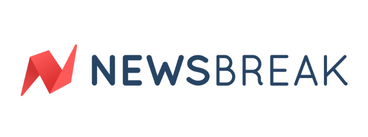
NewsBreak is a digital publishing and aggregation platform for local news. This platform’s material is heavily featured on the NewsBreak functions mobile app. With a growing network of over 10,000 content providers, NewsBreak today has 23 million monthly users. According to Sensor Tower, the app has more than 50 million instals worldwide on iOS and Android devices, with more than 99 percent of them coming from the United States.
Although NewsBreak does not call itself a “blogging” platform, it is one. The key distinction between NewsBreak and many of the other platforms on our list is that it favours material that is timely and relevant to regional issues.
- Allows bloggers to make money from “time-sensitive” content including news, local events, and concerns.
- For each article, writers are paid a set fee plus a revenue split based on the piece’s performance.
- I’m willing to work with different blogs on different payment arrangements.
7. Tumblr

Despite the fact that Tumblr has had a large following for years, there was no apparent option for authors to monetise their work. Tumblr has jumped into the game with Post+, the platform’s first attempt at monetizing user content.
Tumblr’s Post+ feature allows artists to choose which content to put behind a paywall, whether it’s original artwork, personal blog posts, or Destiel fanfic. Subscriber-only material can be priced as low as $3.99 per month, with higher levels of $5.99 and $9.99 available. Tumblr will take a 5% cut of the earnings made by creators.
- There was a huge turnout.
- As a social media platform, the site has a large reach.
- It has a long history of being kind to its content creators.
8. Wattpad
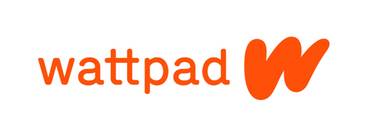
Wattpad is a website and mobile app that connects authors and readers online. The platform is free for all users and fosters a sense of community via the sharing of original stories. Wattpad is a platform where both amateur and professional writers can post stories in a range of genres, including Young Adult fiction, romance, fantasy, and techno-thrillers. Wattpad’s popularity has continuously grown, with 80 million users and writers because to its ease of use and straightforward economic approach.
- Huge fan base and potential readership.
- Provides a unique option for writers who want to publish longer form stories to monetize their work.
- One of the few fiction-focused blogging services.
9. Steemit
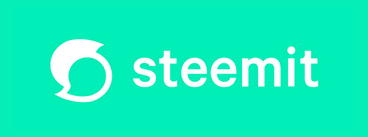
Steemit is a blogging platform that also includes a social network and cryptocurrency. It adopts several of Reddit’s features, such as the ability to upvote and downvote information, as well as follow topics, participate in discussions, and contribute your own content. Users can, however, earn a piece of the earnings in the form of the Steem cryptocurrency. There are opportunities for content authors, curators, and commenters to be compensated.
- One of the most well-known blockchain-based blogging sites.
- Payment techniques that are one-of-a-kind.
- Because of the platform’s decentralized structure, you own and control 100% of your content.
10. Write.as
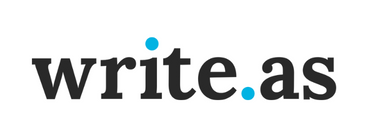
Compose.as is a distraction-free, no-frills platform for authors who want to write and publish their material quickly. It has simple features and techniques aimed at stimulating the fundamental act of writing. Users can write anonymously or create a profile in order to publish various types of content, such as short blog posts or lengthy reports. The author has the option of keeping their work private on Write.as, sharing the direct link with friends, or publishing it elsewhere.
- One of the most privacy-conscious blogging platforms available.
- Provides a distraction-free and clutter-free interface for bloggers.
- Tools for publishing that are similar to Medium.
11. Blogger

Blogger is one of the most user-friendly platforms for launching a blog. It’s completely free to use and allows writers to easily express their ideas with no effort. Users can add photographs, videos, and other information to their blog entries, which are published with a time stamp. Because it is owned by Google, anyone with a Gmail account can sign up for Blogger for free. Users can use a choice of templates to build their blogs or construct their own from scratch. Users can also make money from their blogs by using Google AdSense.
- 40 percent of all websites on the internet are controlled by it.
- Content can be monetized in a variety of ways.
- You have complete ownership and control over your content.
12. Twitter

Many writers, like Tumblr, may not consider Twitter to be a blogging platform. However, as blogs have evolved to include more than just a single article-style post, microblogging site Twitter has made significant inroads among passion economy creators.
Twitter is experimenting with Super Follows, which will allow users to charge followers for access to additional content in exchange for a fee. Bonus tweets, access to a community group, a newsletter subscription, or a badge demonstrating your support are all possibilities. It’s seen as a means for creators and publishers to get compensated directly by their followers, according to Twitter.
- Provides authors with the opportunity to access one of the largest internet audiences.
- Allows bloggers to choose which content is only available to premium members and which is available to all of their followers for free.
- Twitter is a well-known social media site that is becoming increasingly associated with a creator’s own brand.
Conclusion
Writers have a lot of alternatives when it comes to choosing the finest blogging platform for earning money. However, if you choose a blogging platform from the list above, your chances of making money from your online writing will skyrocket.
Also Read: